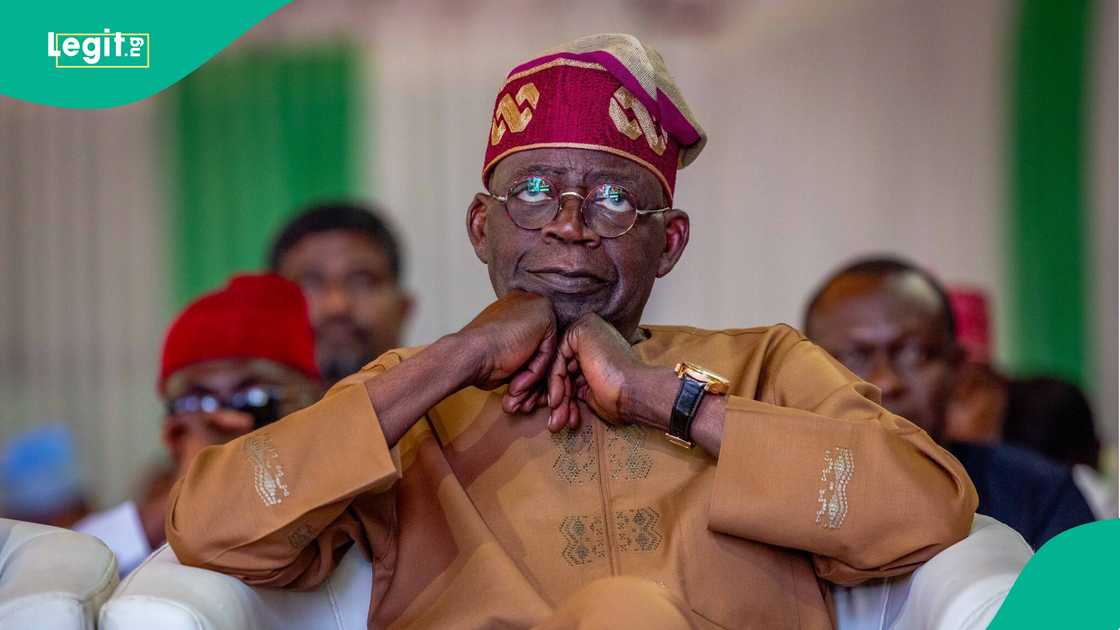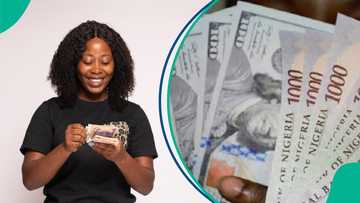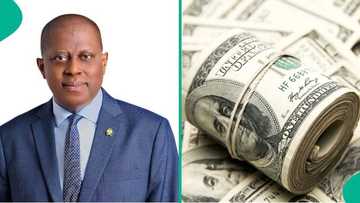After Successfully Repaying COVID-19 Loan, FG to Settle China, World Bank, Others
- Nigeria’s Federal Government increased its external debt servicing by 49% between January and April 2025, paying over $2.01 billion compared to $1.33 billion in the same period in 2024
- The country fully repaid the $3.4 billion loan it received from the IMF’s Rapid Financing Instrument in April 2020, aimed at mitigating the COVID-19 economic impact
- Despite the repayment, Nigeria will continue to incur annual charges related to Special Drawing Rights until its SDR holdings match the total allotment
Legit.ng journalist Zainab Iwayemi has 5-year-experience covering the Economy, Technology, and Capital Market.
The Central Bank of Nigeria's (CBN) most recent foreign payment data shows that the Federal Government disbursed 49% more on servicing external debt than it did the previous year.

Source: UGC
The data shows that between January and April 2025, Nigeria paid over $2.01 billion on repaying its external debt, up from $1.33 billion in 2024.
During the four months, debt servicing alone accounted for 77.1% of Nigeria's total international payments, a significant increase from the 64.5% proportion observed during the same period in 2024.
As of April 2025, the nation's total foreign payments—which include debt service, remittances, and letters of credit—amounted to $2.60 billion, an increase from $2.07 billion during the same period in 2024.
According to reports, Nigeria's foreign exchange reserves decreased by almost $3 billion over the review period.
Nigeria paid $540.67 million in January 2025 compared to $560.52 million in January 2024 on a monthly basis.
The amount was $276.73 million in February, which was about the same as the $283.22 million paid in February 2024.
However, debt service increased to $632.36 million in March, more than twice as much as the $276.17 million paid in the same month the previous year.
With an additional $557.79 million repaid in April, the rising trend continues. This represents a 159% increase over the $215.20 million paid in April 2024.
According to the data, the nation spent around $1.2 billion on debt repayments in just March and April.
This comes after the International Monetary Fund (IMF) confirmed that Nigeria had fully repaid the $3.4 billion it had received through the Rapid Financing Instrument to help mitigate the economic effects of the COVID-19 pandemic.
Compared to conventional IMF programmes, the loan had very favourable terms and was one of the largest disbursements made under the Rapid Financing Instrument worldwide.
The repayment was completed on 30 April 2025, according to a statement issued by the Fund on behalf of Christian Ebeke, the IMF Resident Representative for Nigeria.
The IMF stated,
“As of 30 April 2025, Nigeria has fully repaid the financial support of about $3.4 billion it requested and received in April 2020 from the International Monetary Fund under the Rapid Financing Instrument to help alleviate the impact of the COVID-19 pandemic and the sharp fall in oil prices.”
The loan, which was disbursed in April 2020, was intended to assist Nigeria in coping with the pandemic’s fiscal strains, economic recession, and precipitous decline in oil prices.

Source: UGC
Nigeria will continue to pay additional yearly costs associated with Special Drawing Rights charges of roughly $30 million over the coming years, even after the debt has been fully repaid.
The charges are related to the discrepancy between Nigeria's cumulative SDR allotment of SDR 4,027 million ($5.5 billion) and its current SDR holdings of SDR 3,164 million ($4.3 billion).
According to the IMF, the fees are assessed at the weekly-updated SDR interest rate and will persist until Nigeria's SDR holdings equal the total amount allotted.
FG repays China, World Bank, IMF, other loans
Legit.ng reported that Nigeria spent about $4.66 billion on external debt servicing, an increase of 167% from N2.57 trillion recorded in the previous year.
According to reports, domestic debt service cost for the year under review stood at N5.97 trillion, representing a 14.15% increase from N5.23 trillion in 2023. The increase is due to higher interest rates and rising domestic borrowing.
Nigeria spent about $4.66 billion on external debt servicing, an increase of 167% from N2.57 trillion recorded in the previous year.
Source: Legit.ng





